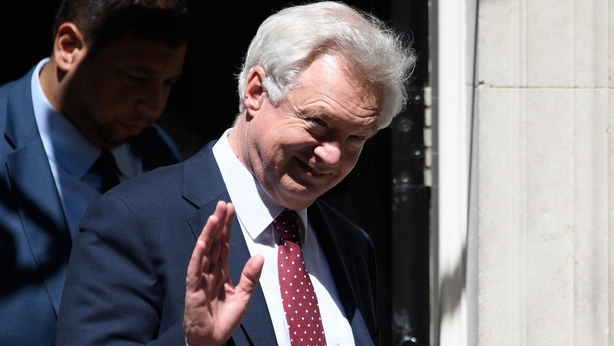Sterling skidded lower this afternoon after British foreign minister Boris Johnson resigned, with the pound falling against both the dollar and the euro.
Johnson followed former Brexit minister David Davis in resigning.
Davis had resigned last night in opposition to Prime Minister Theresa May's plan for life after leaving the European Union.
The pound fell from around $1.3340 to trade as low as $1.3259, down 0.2% the day, after news of Johnson's resignation.
Against the euro, sterling fell 0.4% to trade down at 88.62 pence per euro.
"What we say is the pound can handle ministerial resignations if that's the extent of it... if it means Johnson leaving and not launching a leadership challenge," ING strategist Viraj Patel said.
He added, however, that a leadership bid by Johnson would open up further uncertainty.
Britain's internationally-exposed FTSE 100 extended gains slightly as the pound weakened.
Earlier, sterling had rallied as traders bet the resignation of British Brexit minister David Davis would not endanger the prime minister and instead focused on the government's newly-announced plan that markets believe makes a "soft Brexit" more likely.
In a blow to Prime Minister Theresa May, Davis resigned overnight because he was not willing to be "a reluctant conscript" to her hard-won Brexit agreement with the cabinet.
Under the plan, Britain and the European Union would keep close trade ties but Davis believed this would hand too much power to the European Union in the exit talks.
Davis, however, said today that he would not encourage a challenge to May's leadership.

This fuelled sterling's earlier rally as investors speculated that the exit from the cabinet of a chief opponent to a softer Brexit would make it easier for her to negotiate with Brussels.
Analaysts said the major risk for the pound would be if the Conservative prime minister's leadership looked untenable.
The Davis resignation has underlined May's limited ability to impose cabinet discipline around a softer Brexit strategy. However, analysts said May's success in getting broad agreement for her plan for life after the EU was more important.
UBS Global Wealth Management's chief economist Paul Donovan said the market reaction was "almost as if investors do not know who Davis is".
Under the agreement announced by May on Friday, Britain will retain a close trading relationship with the EU, making the sort of arrangement business leaders have called for in recent weeks more likely.
May today announced Davis's replacement as Brexit campaigner Dominic Raab.
Broad-based dollar weakness also supported the pound's bounce, while data this week could raise expectations of a Bank of England interest rate rise in August if they suggest growing economic momentum in the second quarter.
Analysts predicted that sterling could hit $1.3450 if the EU signals its openness to Britain's Brexit proposal and if the Bank of England sticks to a slightly hawkish script.
Markets are now pricing in a 68% chance of a rate rise in August.
Sterling has climbed 2.3% since hitting a seven and a half month low in late June, boosted by improving economic sentiment and signs that May had faced down the hard Brexiteers in her cabinet.

